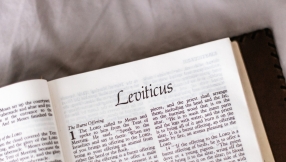Christian education experts have welcomed the opportunities offered by the Government’s free schools agenda but urged Christians to think carefully before deciding whether to set up their own free school.
Oasis founder Steve Chalke and the Chair of the London Diocesan Board for Schools, Bishop Pete Broadbent, attempted to clear up some of the confusion surrounding free schools and what they offer parents and students at a meeting of the Charities Parliament in central London last night.
The Government is attempting to rush its free schools agenda through Parliament before the summer recess. It offers parents or other individuals the opportunity to set up a new state-funded school with freedom to follow its own curriculum and freedom from the local authority.
They differ from academies only in the sense that an academy is created from an existing maintained school that has been bought out from the local authority by a group of individuals, while free schools are brand new schools.
While Chalke and Broadbent both expressed their support for free schools, they urged Christians to consider all the issues carefully before setting one up.
“It is a fantastic opportunity but it’s an opportunity we all need to head into with our eyes very, very wide open,” said Chalke, whose organisation runs 12 academies.
He voiced concern over the criteria for establishing a free school, notably the requirement for a group to show evidence of demand for their new school among local parents.
He warned that satisfying a desire-based demand for schools could lead to a situation in which one group sets up a school according to a particular ethos, only for several other schools to be founded by other parents further down the line, inadvertently rendering the original school unsustainable by taking away students and funding.
“In the place of competition where the money follows the student and the margins are small there is huge risk to you and the students, because in the end we are about the best education for every young person, and five small schools in the area, none of whom can quite afford to pay their bills, is five poor schools rather than two good ones. All of these moral issues are issues that we need to think about,” said Chalke.
Bishop Broadbent said that the free schools policy essentially created a “free market economy” among schools, which made it impossible to plan education according to the actual need for school places in any particular area.
He said that the Government had been “very unclear” so far as to whether the desire for a faith school would be acceptable as one of the criteria for establishing a new free school.
“For many of us, the reason we want to set up a free school is because we want to make it something that represents our own particular commitments in terms of faith, because it has not been easy beyond the Church of England and Roman Catholic Church for schools to be places where there is an expression of religion,” he said.
Under the Academies Bill, new faith schools and academies will have to be community schools, meaning that they will not be allowed to select their entire student body on the basis of faith.
Bishop Broadbent said that although he did not want Christian schools to become “ghettos” which are closed to some, he maintained that schools set up by Christians should still be places where the Christian faith could be expressed.
Chalke added: “I’m excited about the opportunities that faith schools and academies can give to us but I do think we must be driven by a Christian ethos, our Christ-centredness and faith ethos, rather than by a sort of land grab, where we just try and get the best deal for ourselves.”
Both leaders said it was important to think about the benefit to all young people living in the community and not simply those who would attend the new school.
Chalke said Oasis had chosen to work alongside the local authorities in all 12 of its academies not only because of their expertise, but because it did not want to “denude” other schools of talented staff and create opportunities for some young people while depriving others.
He said: “If we are going to go forward we have to go forward thinking about every child in the community and not just the children in our school. Will what we offer create opportunities for one child and deprivation for another?”
Bishop Broadbent advised Christians to first think about the ethos and values of their new school and how it would relate to the wider community.
“Unless you’ve worked out what you’re about and why you’re doing it, and you’ve got a vision of what you are doing with children – which is about their createdness in the image of God and our desire to see the best for our children with a Christian value framework – then it’s not going to work,” he said.
The Government has made clear that the plug will be pulled on free schools which fail to meet the standards set by Ofsted.
Chalke and Broadbent warned of tough regulations and possible bankruptcy if groups did failed to take into account the huge cost of running a free school or academy before setting one up.
Bishop Broadbent admitted that if the free schools initiative “went half cock” and some schools did not think through all the issues, it would not only bring charities into disrepute but cause suffering to the young people attending the failed schools.
“That’s the danger of the free market economy. If you haven’t got enough expertise and you are trying to run it on volunteers and a shoestring budget, it can’t work well,” he said.
Chalke and Broadbent said the free schools initiative would work best if parents or groups got together and worked in coalition, sharing costs and expertise.
Broadbent concluded: “If you care about your community, you can’t do this in isolation.”
Most Popular
Stay up to date with Christian TodayNews

NI conversion therapy proposal will criminalise innocent behaviour
A proposal to ban conversion therapy in Northern Ireland has been labelled "jellyfish legislation".

Renewing the old and sanctifying the new in education
Hebrew academic and Jewish scholar Irene Lancaster reflects on what society can learn from the Jewish approach to education and the importance of nurturing the soul.

Half of students think the Bible is relevant today
Is the glass half empty, or is it half full?

Lancashire called to pray for partners in crisis-hit South Sudan
The Diocese of Blackburn has forged strong ties with its South Sudanese counterpart in Liwolo.





